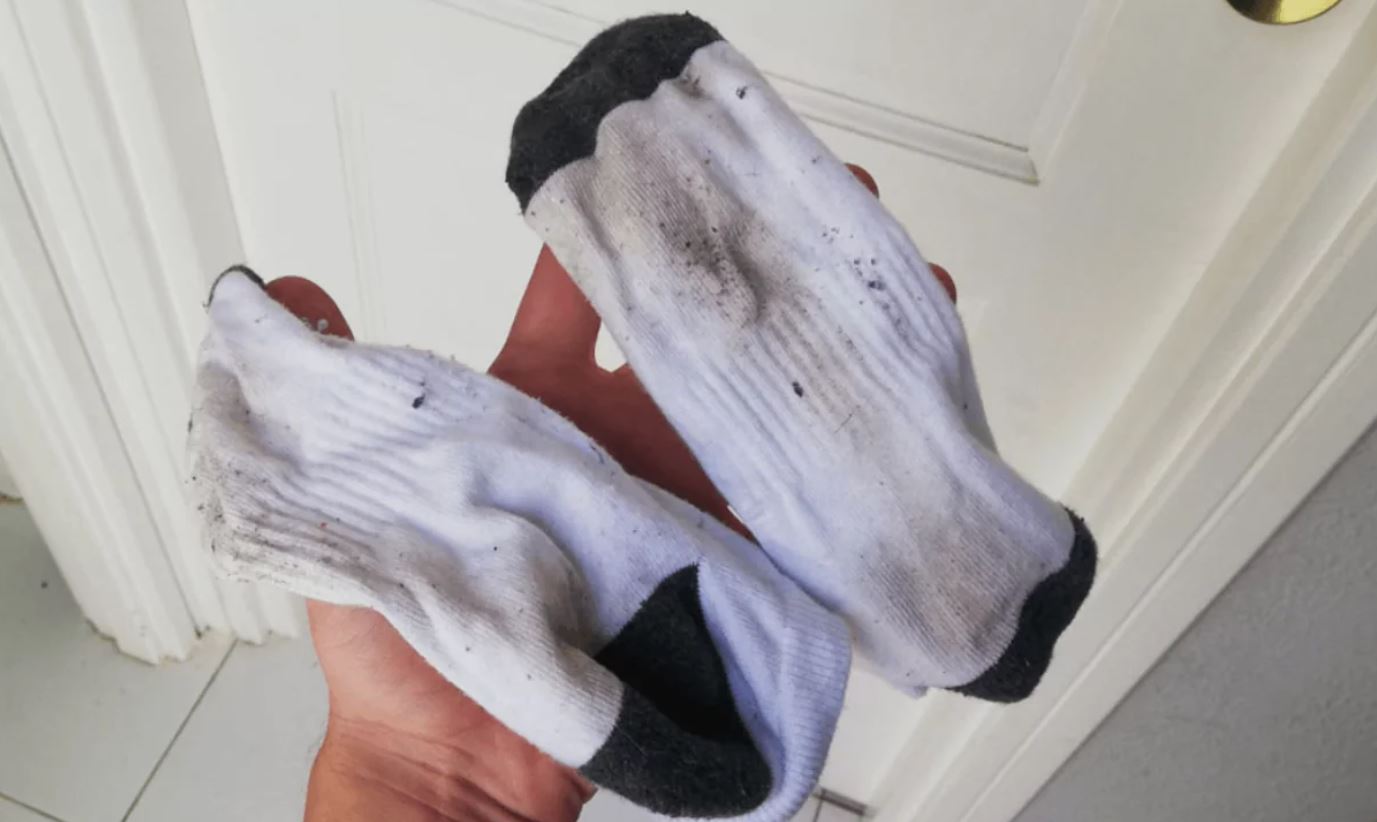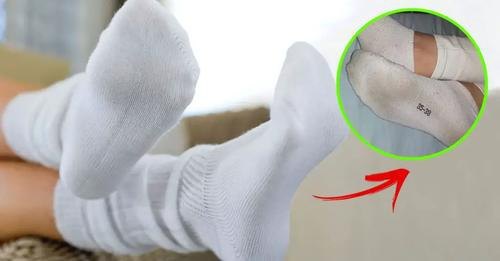- 2 tablespoons of salt (20 g)
- 1 liter of warm water
- Pour the two tablespoons of salt into a liter of water, stir so that the salt dissolves and immerse the socks.
- If the socks are very dirty, add a little detergent for better results.
- Avoid using very hot water, as it can damage the elasticity of the garments.
- ¼ cup hydrogen peroxide (60 mL)
- 1 liter of warm water
- Dilute the hydrogen peroxide in a liter of warm water and soak the socks for 40 minutes.
- After this time, remove excess water and wash them with regular soap.
- 1 cup lemon juice (250 ml)
- 1 liter of warm water
- Add fresh lemon juice to a bowl of warm water, then dip your socks in and let them soak for 45 minutes.
- Then rinse them as usual and let them dry in the sun.
- 2 tablespoons baking soda (20 g)
- ½ lemon
- Rub the two tablespoons of baking soda into the damp socks, let them sit for a few minutes, and then rub them with half a lemon.
- To finish, wait another 10 minutes, rinse them and dry them in the sun.
- 1 cup white vinegar (250 ml)
- ½ liter of cold water
- Make a solution of white vinegar with water and soak the socks for 30-40 minutes.
- Scrub them thoroughly, add some liquid soap and rinse.
- Finally, dry them in the sun for best results.
ADVERTISEMENT
Socks are one of the clothes we use the most and, therefore, they are the ones that tend to get dirty and wear out over time. Being in continuous contact with your feet, it is common for dirt to adhere to your socks and stains that are difficult to remove form, especially if you walk around the house barefoot.
Although many cleaning products have been developed, there are those who are looking for ecological alternatives to avoid the use of harsh chemicals. These, according to this research carried out by the Mutual de Seguridad Clinical Hospital of Chile, can be very harmful to our health if we do not use them correctly. Fortunately, now it is very easy to use all those practical and economical tricks that allow us to whiten these clothes without affecting our health or the environment. Next, we want to share with you the 5 most effective tricks to whiten socks without using bleach.

1. Salt water
The warm salt water solution helps to more easily remove dirt stains that accumulate on socks.
Ingredients
How to use
2. Hydrogen peroxide
Hydrogen peroxide, commonly known as hydrogen peroxide, is a very useful product for washing white socks. Its properties eliminate bad odors caused by sweat and eliminate even the most difficult stains.
Ingredients
How to use
3. Lemon juice
Lemon juice contains natural acids that help preserve the whiteness of all types of clothing, according to a study carried out by the Leiden University Medical Center (Netherlands). Its antibacterial compounds control bad odors and leave a fresh aroma.
Continued on next page
ADVERTISEMENT
ADVERTISEMENT
Ingredients
How to use

4. Baking soda
Baking soda is one of the most used ecological products when cleaning dirty clothes and the house. Its astringent and whitening action is used to care for delicate garments , including socks. It is recommended to combine it with lemon juice or hydrogen peroxide to enhance its cleaning effects.
Ingredients
How to use
5. White vinegar
Using white vinegar to wash clothes is a very common practice, especially among people who have opted for 100% ecological cleaning methods. This is stated in this research from the University of Massachusetts Lowell (United States). This product contains acids and active compounds that, in addition to removing dirt, disinfect and neutralize bad odors. In addition, it serves as an alternative to softening products, since it has similar effects, but without containing aggressive chemicals.
Ingredients
How to use
The results of these homemade tricks may vary depending on the quality of the products used and the type of fabric of the socks. So if you don’t get the results you want, try another one on the list until you find the one that works best for you. Also, avoid using chemical bleach, as it is too aggressive a product and tends to affect the quality of the fabrics.
ADVERTISEMENT
ADVERTISEMENT
